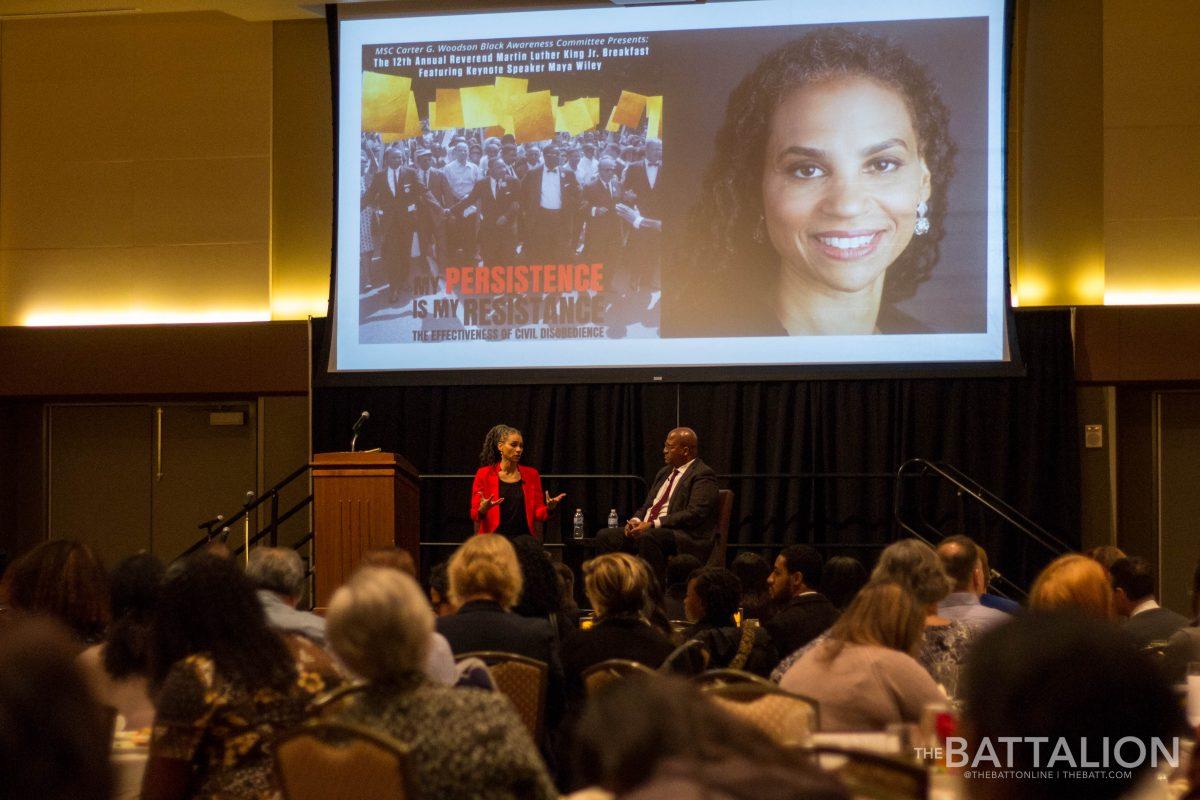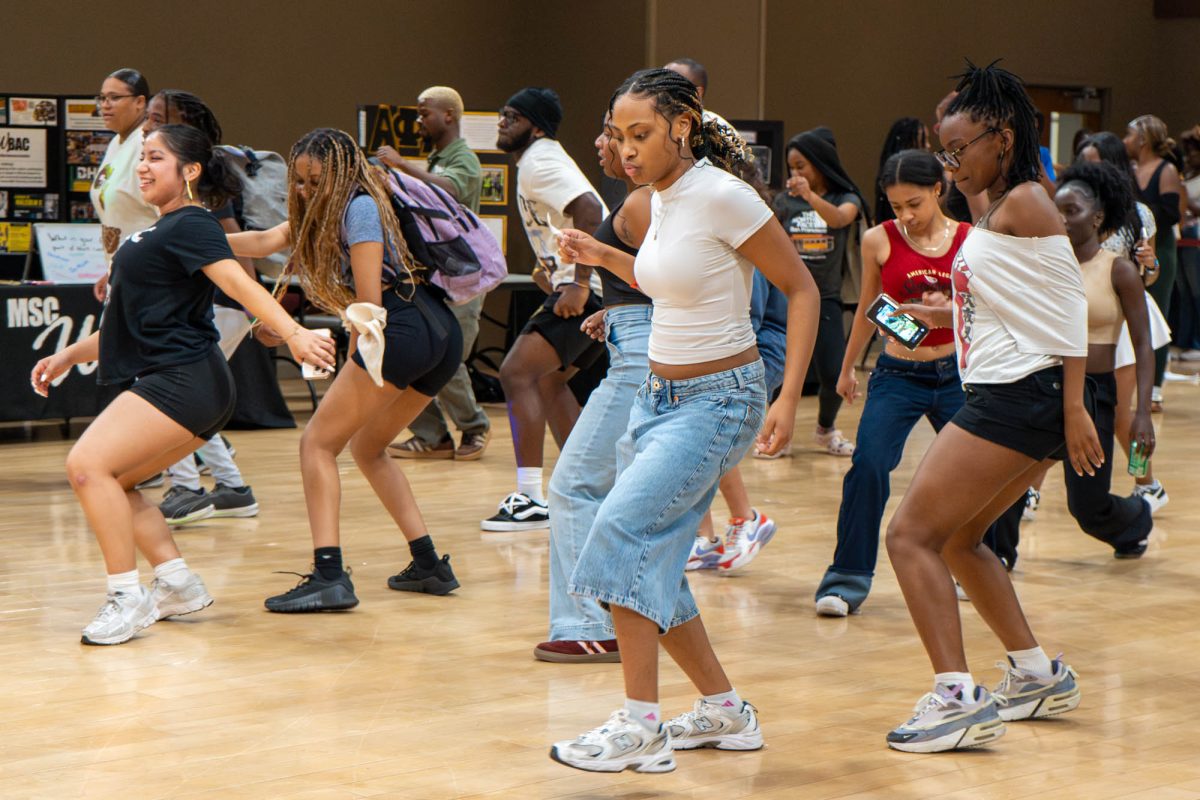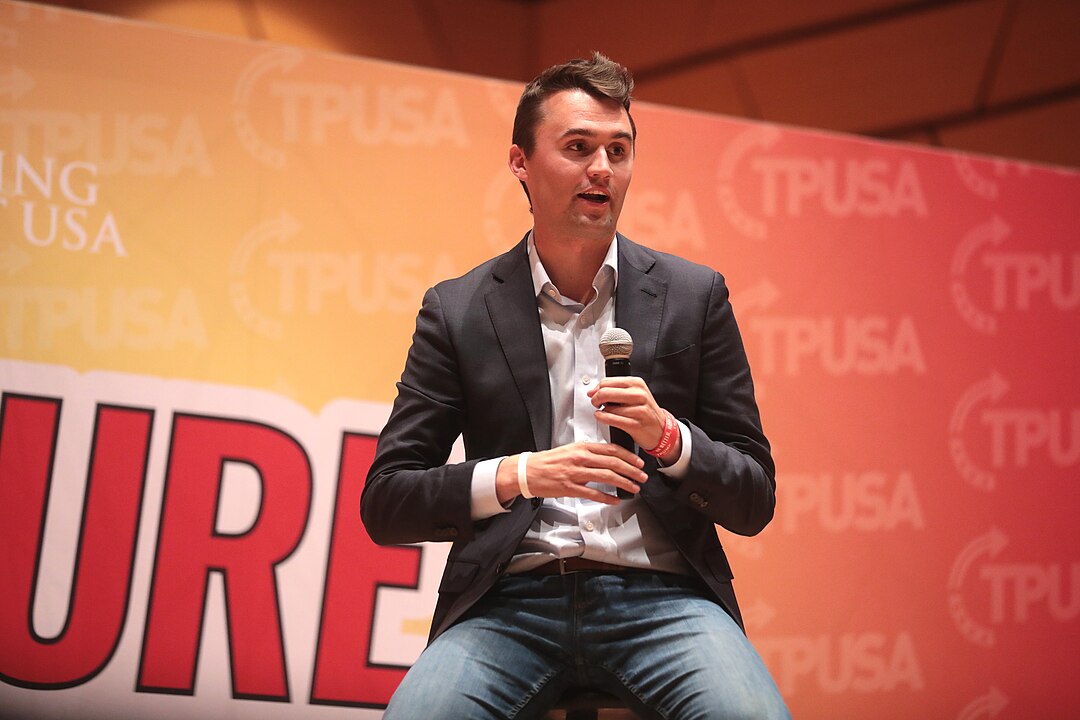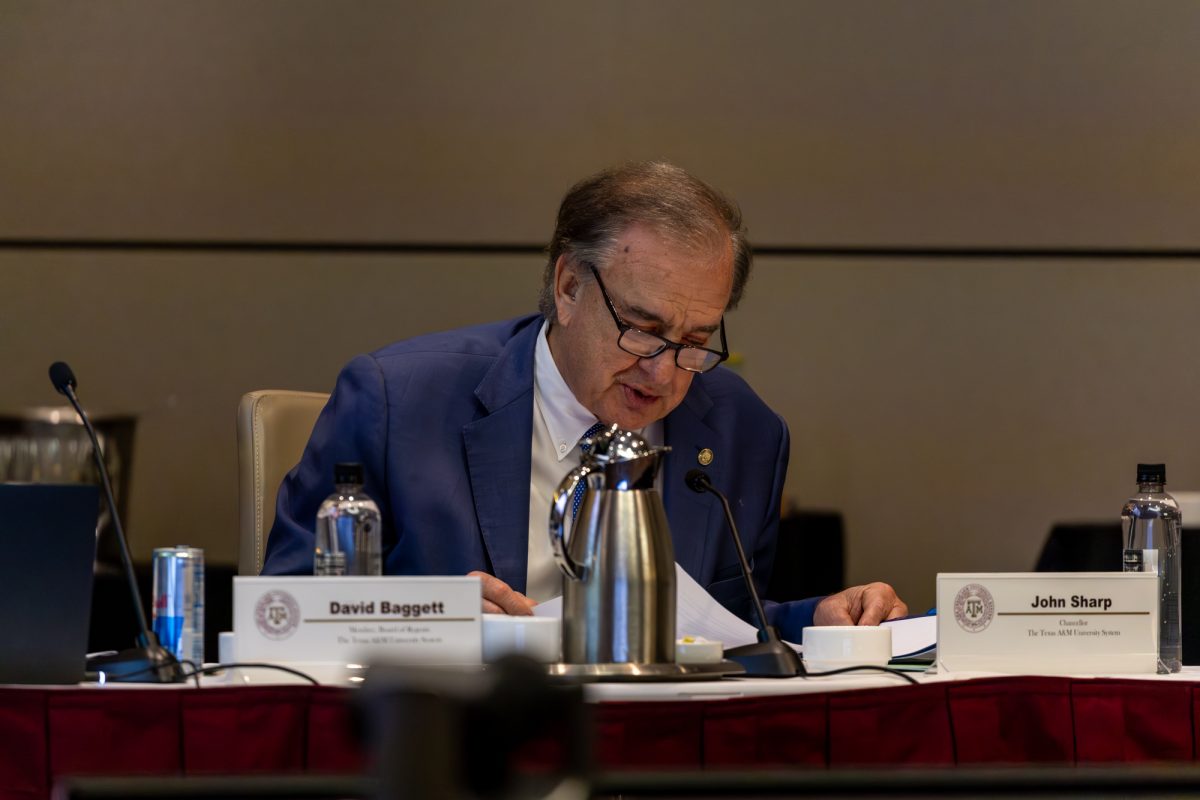Guest speakers focused on the importance of education to effectively enact social change at Thursday’s Reverend Dr. Martin Luther King Jr. Breakfast.
The 12th annual breakfast was centered around the theme “My Persistence is my Resistance: The Effectiveness of Civil Disobedience.” Featuring nationally-renowned racial justice expert Maya Wiley and award-winning poet Ebony Stewart, the event was meant to honor King and start discussions on combating social injustices of today.
Psychology junior and MLK Breakfast director Kayla Hood said she hopes King’s ideology of inclusivity continues to be an integral part of people’s lives today and in the future.
“I think that Dr. King’s dream of inclusion, it still lives on today, it should still live on today,” Hood said. “I feel like we provide a space where we can discuss how his legacy has impacted so many people and how we can keep it alive and I think it is also important to recognize other civil rights leaders as well and just have the community come and really try to honor him and honor his legacy.”
The Voices of Praise Gospel Choir kicked off the event with a rendition of “Lift Ev’ry Voice and Sing,” often referred to as the Black National Anthem. The university welcome address was given by Robin Means Coleman, vice president & associate provost for diversity.
Coleman said people should not be afraid of resistance but should strive to be “informed intentional change agents” like King.
“Dr. King Jr., of course, was the standard bearer for persistent resistance,” Coleman said. “He is our model for how activists’ maturation comes from research, through understanding and through partnerships.”
Stewart presented a spoken word poem on the misery and joy of being a person of color in today’s society. Her emotional performance received a standing ovation and praise from the keynote speaker and audience members.
Wiley spoke with Leroy Dorsey, associate dean of the College of Liberal Arts, about being an informed activist.
“Facts matter — you have to know what you are talking about,” Wiley said. “You have to do the research. But the research and the facts are not all in books … If you do not understand the actual day-to-day experience of the people you are trying to work with and help, you are going to get it wrong.”
Wiley said movements are not the result of one single person’s efforts. She said people like King inspire and keep people engaged with extensive skills and knowledge, but anyone who participates in any capacity is a valuable part of the movement.
Student Body President Amy Sharp said she has attended the breakfast for the past two years and still believes that events like these bring awareness to individuals and as the community as a whole.
“I, along with students here, leave with so many thoughts, so many questions of our own biases,” Sharp said. “So many questions that you realize there is so much more you have to learn. No matter how great of a social activist you are, no matter how much you have done, all of us have such a duty, as it was mentioned, to be that chief diversity officer in our life, and all of us fall so short of that standard.”
12th annual MLK breakfast applies King’s legacy to present day
January 17, 2019
Photo by Photo by Meredith Seaver
MLK Breakfast_Seaver2019.jpg
0
Donate to The Battalion
$1065
$5000
Contributed
Our Goal
Your donation will support the student journalists of Texas A&M University - College Station. Your contribution will allow us to purchase equipment and cover our annual website hosting costs, in addition to paying freelance staffers for their work, travel costs for coverage and more!
More to Discover










